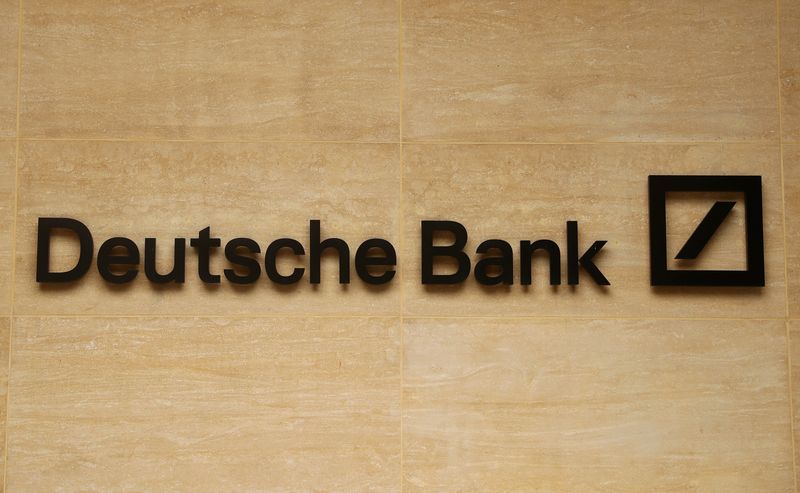By Tom Sims and Marta Orosz
FRANKFURT (Reuters) - Germany's Deutsche Bank (ETR:DBKGn) has a stark warning to European companies borrowing from U.S. lenders: They will drop you when times get tough.
The caution, spelled out in an interview with Deutsche Bank board member Fabrizio Campelli, is the latest escalation in a battle with U.S. banks for the business of European firms on its home turf.
It comes at a time that the corporate banking unit of Germany's largest lender is seeing a resurgence in the home stretch of an extensive restructuring.
"A number of European corporates are already realising the risks of not operating with companies that are long-term committed to the geographies ... in which they operate," he said, without citing any examples.
Campelli, who oversees Deutsche's corporate division as well as the investment bank that powered Deutsche through the overhaul, said U.S. banks "tend to flex lending up and down depending on circumstances".
"There was evidence of non-German banks in this country taking lending off the table while German banks were going longer-credit during the pandemic, in 2020," he added, again without citing examples.
Last year, five of the largest U.S. banks - JPMorgan (NYSE:JPM), Bank of America (NYSE:BAC), Morgan Stanley (NYSE:MS), Goldman Sachs (NYSE:GS) and Citigroup (NYSE:C) - captured a combined 35% share of the revenue for loans by German companies, up from 18% a decade earlier, data from Dealogic compiled for Reuters show.
Deutsche Bank Chief Executive Christian Sewing recently warned of the "danger" of European reliance on foreign banks, equating the threat to the region's dependence on outsiders for energy.
Deutsche Bank has long highlighted a need for Europe to have strong banks to vie with U.S. and Chinese competitors, but the latest rhetoric signals a more aggressive tone.
Campelli called for a "concerted approach" by politicians and regulators to support European banks.
TIDE IS TURNING
In 2019, Deutsche embarked on a revamp, promising to shift away from its volatile investment bank and towards its more staid businesses that serve corporations and individuals.
Having long struggled to deliver on that pledge, the tide, buoyed by rising interest rates, is turning. Higher borrowing costs are fattening profits from regular banking, although war, runaway prices and energy costs cloud the horizon.
"We're now getting there," said Campelli, who previously oversaw the overhaul. "Did we rely more on the investment bank during ... 2020-21 than we initially expected? Yes. We're starting to see a much more balanced earnings mix."
U.S. banks reject the criticism. JPMorgan, now one of the largest banks in Germany, says it is committed.
Stefan Behr, head of JPMorgan's operations in Europe, told Reuters he hasn't seen any pushback on its growth in Germany and noted that "many of the German banks work with us on deals as well as us being a banking partner to them."
"There's competition for every deal. And when they don't win it, I'm sure that they're not happy about it, just like we're not happy if we lose a mandate," Behr said.
Citigroup's head in Germany Stefan Hafke told Reuters that its client base in Germany is made up of "very long-term, sustainable relationships."
He said he wanted strong European banks in Germany and pushed back on being a mere U.S. bank. "We are operating on an equal footing with anyone else," he said.

Goldman, whose headcount in Germany has surged in recent years, declined to comment. Morgan Stanley did not immediately respond to a request for comment.
A spokesperson for Bank of America said Germany was critically important to its strategy, saying: "There is no pullback."